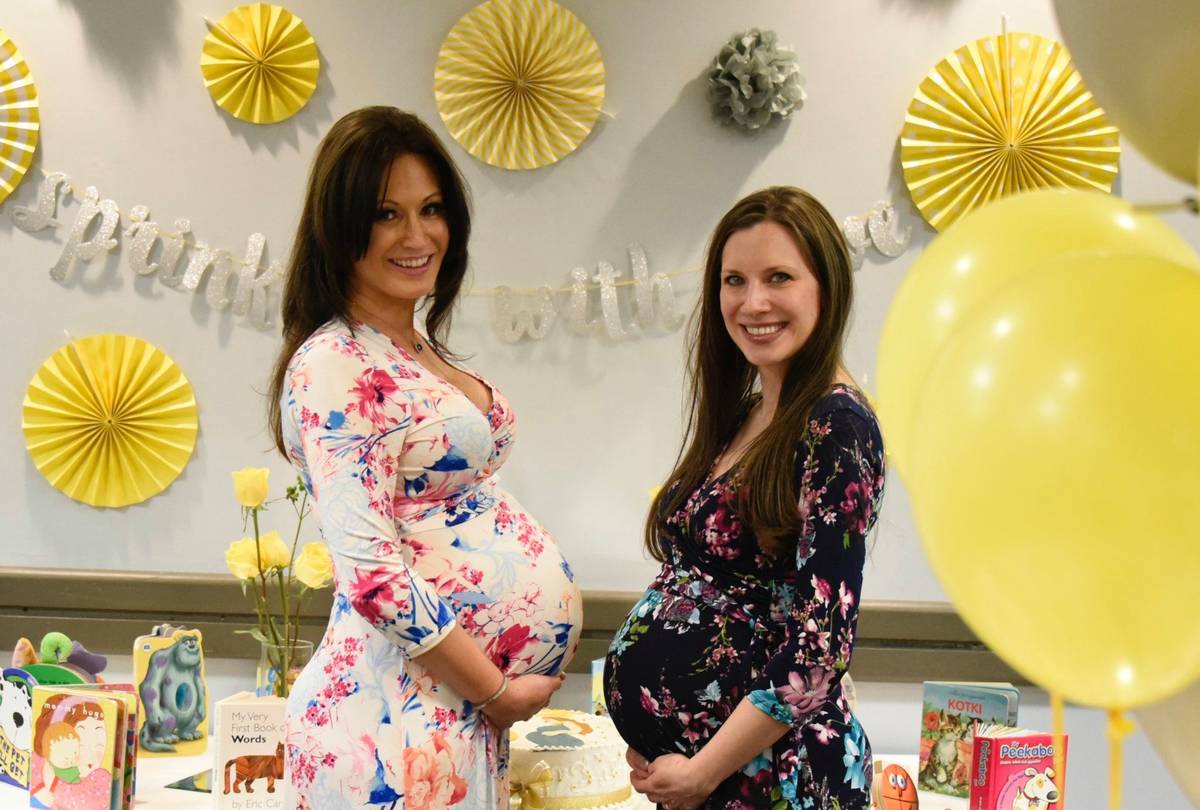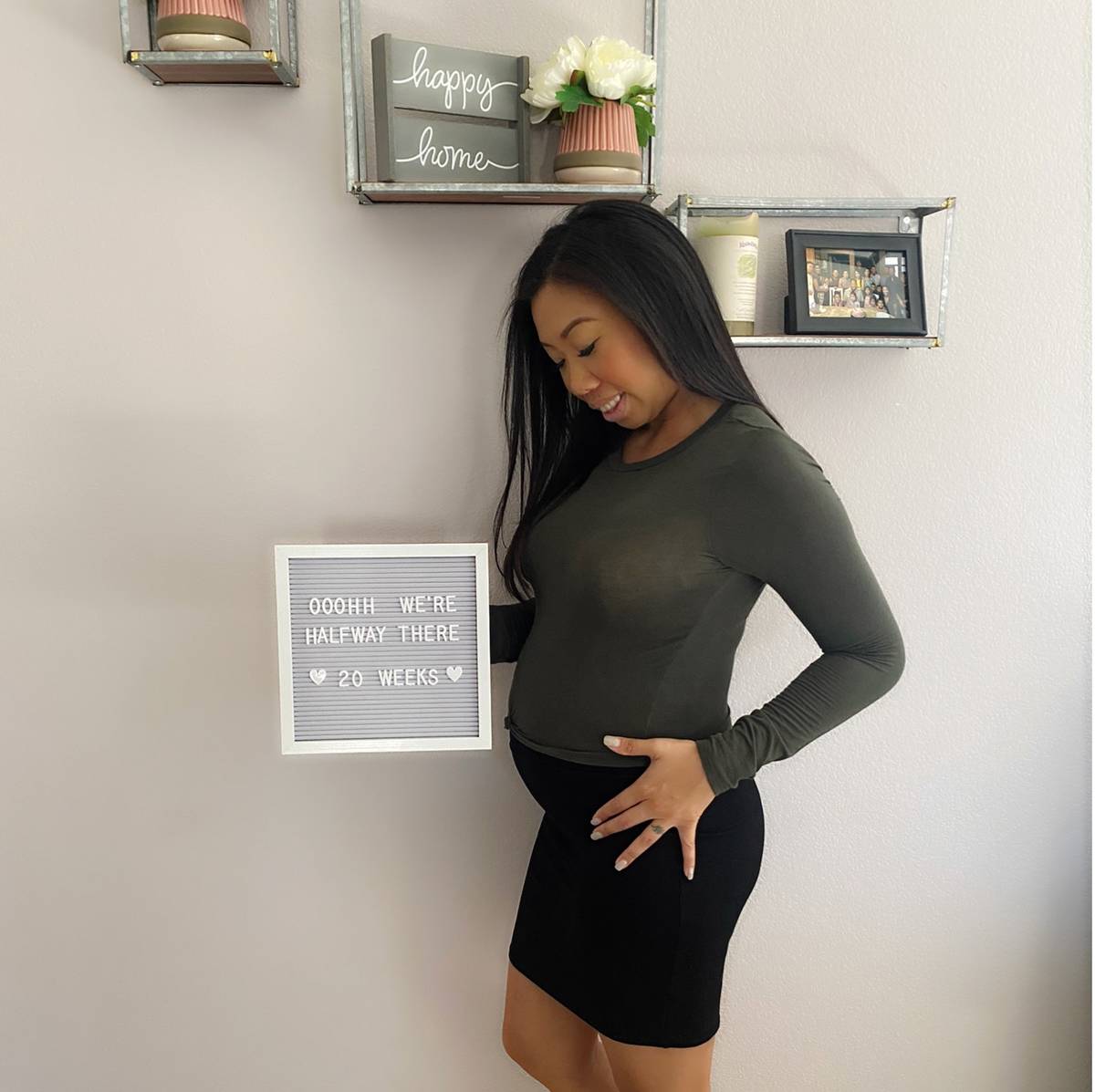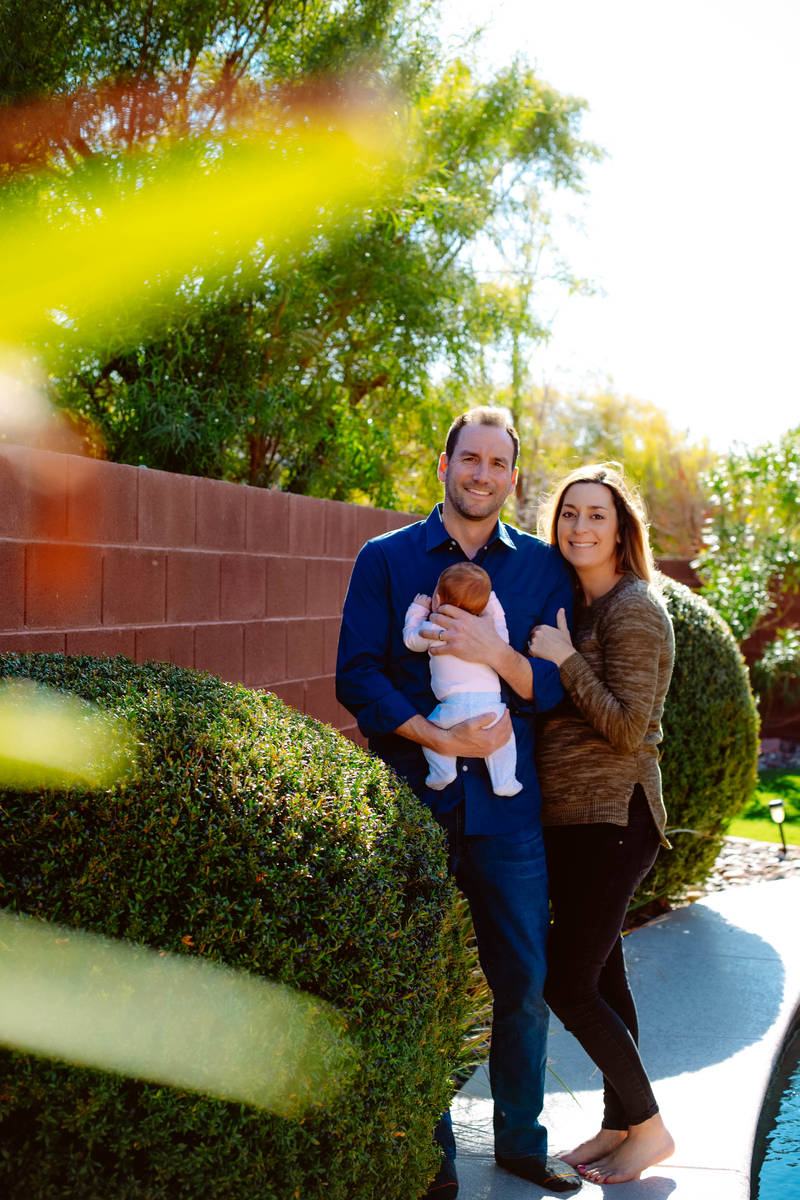Pregnant women face fear amid COVID-19 crisis
Pregnancy is typically full of excitement, but many expectant mothers in Las Vegas say the COVID-19 pandemic has stripped them of that emotion and replaced it with fear.
Diane Chantapanya is 22 weeks into her first pregnancy and recently spent more than two weeks alone. Her family can’t visit, and her husband was quarantined because he was suffering from a fever and flu-like symptoms.
“Pregnancy is something that’s meant to be celebrated with family and friends,” she said. “It’s been hard having to celebrate it by myself.”
Chantapanya sat through her 20-week ultrasound by herself. She also felt her baby kick for the first time and wasn’t able to share the experience with her husband.
“Since the virus is so new, we don’t know exactly how it affects people who are expecting,” Chantapanya said.
‘Open for business’
The fear has led Chantapanya to stay inside, scared to venture out to get the items she needs to prepare her baby’s nursery. But Dr. James Alexander, chair of the OB-GYN department at the UNLV School of Medicine and medical director at Sunrise Hospital and Medical Center, said he doesn’t want women to be afraid.
“We’re open for business,” Alexander said. “We’re still here to take care of women, and I want them to know that.”
Alexander said hospitals in the valley have been working diligently to abide by Centers for Disease Control and Prevention guidelines while providing the best care possible for the patients who need it. For pregnant women, he said, that mostly looks like added precautions before the appointments.
“We try to do telemedicine visits when possible, but it’s important for pregnant women to be able to come into the office,” he said. “So when they get here they’ll be screened outside before they’re allowed in, and if they show symptoms of the virus, we have testing available.”
Chantapanya said when she shows up to the hospital she has to stay in her car and wait for nurses in hazmat suits to come out and take her vitals in the car. If her temperature is normal, then she’s allowed inside to see the doctor.
“They’re not as friendly and chatty as they used to be,” Chantapanya said. “I completely understand it, but now an appointment that would normally run for an hour to an hour and a half only lasts about 30 to 40 minutes.”
The CDC has added pregnant women to its list of individuals who may be at risk of severe complications if they contract COVID-19, but Alexander said evidence has shown that most pregnant women who test positive see only mild to moderate symptoms. However, he said hospitals are showing a heightened awareness.
Alexander recommends that pregnant women practice good social distancing and wash their hands regularly, wearing gloves if they have to go out in public.
“I just want them to not be scared,” he said. “If they do get the virus, I want them to know that we are confident that we can manage these pregnancies safely.”
‘Absolutely heartbreaking’
Kasia Gordon and her sister Anita Mitchum are both pregnant with their second children, and their due dates are two weeks apart. Gordon said the news was thrilling at first, and the sisters even had a joint “baby sprinkle” party — or minishower — with their family about three weeks ago, just before the COVID-19 restrictions began.
“It’s amazing how three weeks can make such a huge difference,” Gordon said. “It’s absolutely heartbreaking.”
Gordon said she and her sister were ecstatic to share the experience together, but their feelings quickly turned to trepidation. She is set to deliver her baby via cesarean section May 12 at St. Rose Dominican Hospital, Siena campus, and her sister plans to do a natural birth at a birthing center in town at the end of May. Gordon said the head of labor and delivery at St. Rose told her that, even if the restrictions are lifted and the virus seems to have cleared up by her delivery date, things likely will not be any easier for her delivery.
“She said even if it goes away, the hospitals will likely keep their policies strict for weeks or months,” Gordon said. “I’m no longer excited. I’m living in fear and dread.”
Delivering alone
Gordon said she will be delivering her baby alone, because mothers are not allowed a “support person” if they have a C-section. And Gordon believes it’s a good thing.
“When the dads go into the room for a C-section, they have to suit up in scrubs and a mask,” she said. “With all that’s going on, I wouldn’t want him to take a mask from a doctor or nurse who needs it more.”
Dr. Shadaba Asad, medical director of infectious disease at University Medical Center, said the decision of how the baby will be delivered remains up to the mother and her doctors.
“The decision between a natural birth and a C-section is still there,” Asad said. “And COVID-19 patients are not required to get a C-section.”
Asad explained that the delivery process looks mostly the same for COVID-19 patients, though their babies probably will be taken to another room immediately after the birth to avoid infection. But she said mothers who have tested positive are still encouraged to breastfeed, with added precautions.
“Breast milk is still considered to be the best option because of all the nutrients and antibodies that the baby needs,” Asad said. “Mothers who have tested positive for COVID-19 are just instructed to wash their hands before breastfeeding and wear a mask while they do it, or pump and have a loved one give the milk from a bottle.”
Added isolation
Lucy Hollander gave birth to her first baby Jan. 30, shortly before COVID-19 started affecting day-to-day life in the U.S., but she had heard about what was happening in China.
“I remember telling my husband right around the time I was supposed to go into labor that I was really nervous,” she said. “I don’t even think anyone in the U.S. had it at that point. We certainly weren’t affected by it. But I remember thinking how terrifying it would be to go into a hospital and give birth.”
Hollander said parents have been encouraged to cancel any nonessential doctor’s visits to keep themselves and their children safe. But she and her husband, Paul, had to bring their daughter in for her 2-month immunizations last Monday.
“We knew her immunizations were obviously really important, but it was scary bringing her into the hospital during all this,” she said.
The Hollanders haven’t allowed any visitors into their home, and they’ve canceled trips to visit family in Oregon and Chicago.
“It’s hard because she changes so much at this age, and our families are going to have to miss out on seeing her this little,” she said. “You already feel really isolated after you have a baby, and this just adds to that.”
Contact Alexis Egeland at aegeland@reviewjournal.com or 702-383-0335. Follow @alexis_egeland on Twitter.













































